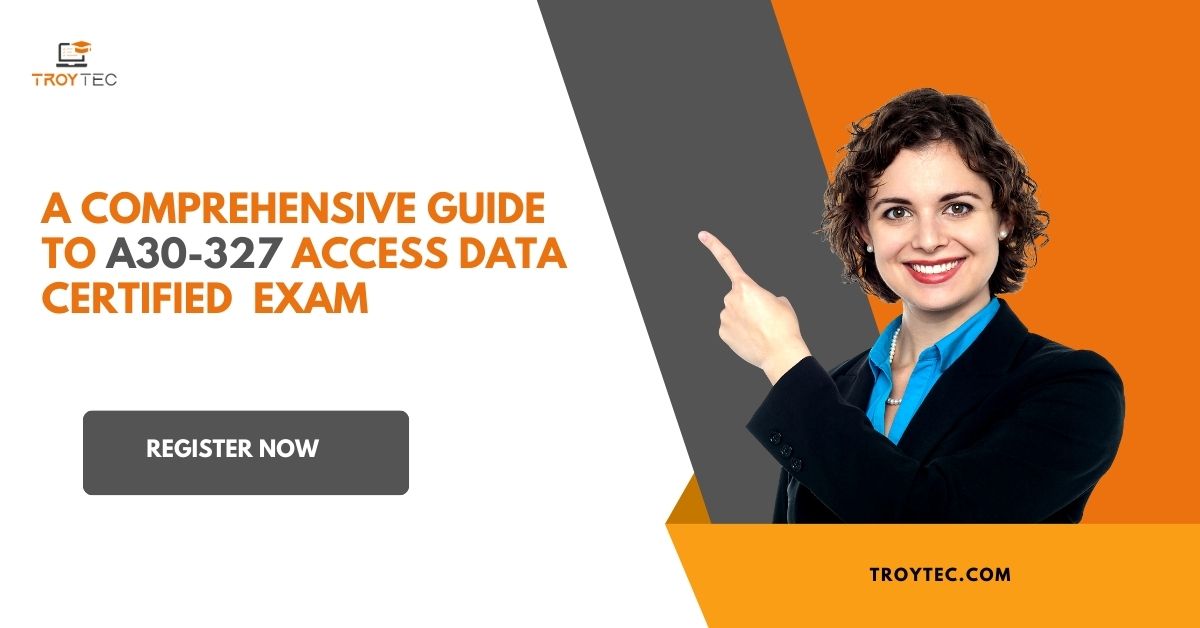A Comprehensive Guide to the A30-327 Access Data Certified Examiner Exam
Introduction:
The A30-327 Access Data Certified Examiner (ACE) exam is a highly regarded certification that assesses the skills and knowledge of digital forensics and incident response professionals. Administered by Access Data, a leading digital forensic solutions provider, this certification is designed to validate the expertise of individuals who investigate and analyze digital evidence in various legal and investigative contexts. In this blog, we will explore the critical aspects of the A30-327 ACE exam, including its purpose, content, preparation, and career benefits.
Purpose of the A30-327 ACE Exam:
The primary purpose of the A30-327 ACE exam is to certify professionals involved in collecting, preserving, analyzing, and reporting digital evidence. Digital forensics experts are critical in criminal investigations, litigation support, cybersecurity incident response, and more. By earning the ACE certification, individuals can demonstrate their proficiency using Access Data's Forensic Toolkit (FTK) and other tools to perform comprehensive digital investigations.
Exam Content:
The A30-327 ACE exam covers a wide range of digital forensics and incident response topics. While the specific content may evolve, some common areas of focus include:
- Computer and Mobile Device Forensics: This section assesses candidates' knowledge of acquiring and analyzing data from various computer systems and mobile devices. It covers file systems, data recovery techniques, and mobile device forensics.
- FTK Usage: As Access Data's flagship tool, FTK is a central exam component. Candidates must demonstrate their proficiency in using FTK for keyword searching, data carving, and timeline analysis.
- Data Analysis and Reporting: This part of the exam evaluates candidates' ability to analyze digital evidence and generate accurate reports suitable for legal proceedings. It covers data interpretation, artifact analysis, and report creation.
- Legal and Ethical Considerations: Digital forensics professionals must adhere to strict ethical guidelines and legal requirements. Candidates are tested on their understanding of the legal framework, rules of evidence, and ethical standards relevant to the field.
- Incident Response: In today's cybersecurity landscape, incident response is critical. The ACE exam includes questions related to responding to data breaches, malware infections, and other cybersecurity incidents.
Preparation for the A30-327 ACE Exam:
Preparing for the A30-327 ACE exam requires a combination of study materials, practical experience, and dedication. Here are some steps to help you succeed:
- Training Courses: Access Data offers training courses and resources help candidates to pass for the ACE exam. These courses cover FTK, best practices in digital forensics, and exam-specific content.
- Self-Study: Supplement your training with self-study resources such as textbooks, online tutorials, and practice exams. Familiarize yourself with the content domains outlined in the exam objectives.
- Hands-On Experience: Practical experience is invaluable in digital forensics. Work on real-world cases or perform lab exercises to apply your knowledge and skills.
- Exam Objectives: Access Data provides a detailed outline of the topics and skills tested in the ACE exam. Use this as a roadmap for your study plan.
- Practice Exams: Take practice exams to assess your readiness and identify areas for further study. Practicing demo questions can help you become familiar with the exam format.
Career Benefits:
Earning the A30-327 ACE certification can open doors to numerous career opportunities in digital forensics and incident response. Some of the benefits include:
- Career Advancement: The ACE certification can enhance your professional credibility and make you a more attractive candidate for job promotions and leadership roles.
- Increased Earning Potential: Certified digital forensics experts often command higher salaries than their non-certified counterparts.
- Industry Recognition: The ACE certification is recognized and respected within the digital forensics community, providing a competitive edge in your career.
- Job Security: In a world where cybersecurity threats constantly evolve, skilled digital forensics professionals are in high demand. Certification can provide job security and stability.
Conclusion:
The A30-327 Access Data Certified Examiner (ACE) exam is vital for individuals pursuing a career in digital forensics and incident response. By demonstrating your expertise in using Access Data's tools and conducting digital investigations, you can enhance your career prospects and contribute to cybersecurity and digital forensics. You can successfully pass the ACE exam and validate your skills in this critical and ever-evolving field with proper preparation and dedication.

.jpg)
.jpg)
.jpg)
Comments
Post a Comment